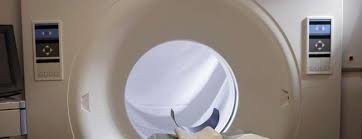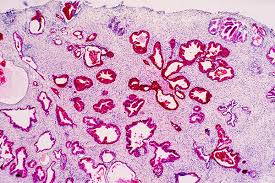In order to fully evaluate the effectiveness and safety of PSA screening, Professor Ilic from Australia recently updated a systematic review and meta-analysis to include new research data and follow-up data based on the original data. The results showed that the net benefit of PSA screening was small, and doctors and patients should weigh the pros and cons and make a joint decision before screening.

The study retrieved all clinical randomized controlled trials of PSA screening prior to April 2018. The search databases included the Cochrane Clinical Randomized Controlled Trials Registry, Web of Science, Embase, Scopus, OpenGrey, LILACS, Medline, and PubMed. The main indicators of the study included total mortality, prostate cancer-specific mortality, prostate cancer detection rate, detection of prostate cancer staging, quality of life, false positive rate, false negative rate, and screening-related complications.
A total of five clinical randomized controlled trials met the inclusion criteria and included 721,718 screening populations.These five clinical randomized controlled trials have varying degrees of differences in screening frequency and interval, biopsy PSA indications, and risk of bias.
Based on the above differences, the study found that PSA screening may have no effect on the overall mortality rate of the screening population (irr 0.99; moderate evidence intensity) and may have no effect on prostate cancer-specific mortality (irr 0.96; low evidence intensity).

The study was further tested for sensitivity. Sensitivity testing reconfirmed that PSA screening had no effect on overall mortality in the screening population (irr 1.0; moderate evidence intensity) but may have a minor effect on prostate cancer-specific mortality (irr 0.79; medium evidence intensity), This means that more than 10 years of PSA screening for 1,000 men can reduce one patient's death from prostate cancer.
In addition, the study also confirmed that PSA screening can increase the detection rate of prostate cancer (irr 1.23; low evidence intensity). Among them, the detection rate of localized prostate cancer (clinical stage Ⅰ and stage Ⅱ) increased (irr 1.39; low evidence intensity), reducing the detection rate of progressive prostate cancer (clinical Ⅲ and Ⅳ) (irr 0.85 ; low evidence strength).
PSA screening did not affect the patient's quality of life (low evidence strength). Approximately two-thirds of the screening population with elevated PSA will have a false positive, and approximately 15% of the screening population with PSA <4 ng/ml will have a false negative.

In these clinical randomized controlled trials, data on biopsy and treatment-related complications that can be used for direct comparison are limited. Therefore, the study estimated that about 1,000 males per screening, about one patient would be hospitalized for sepsis, three patients would need diapers due to urinary incontinence, and 25 patients would have erectile dysfunction.
In summary, in the best case, more than 10 years of PSA screening can slightly reduce prostate cancer-specific mortality in the screening population, but has no effect on overall mortality. Clinicians and patients should weigh the pros and cons before performing PSA screening, especially biopsy and treatment-related complications, and avoid overdiagnosis and over-treatment caused by blind screening.
In addition, for patients with prostatitis, it is recommended to take Diuretic and Anti-inflammatory Pill to avoid deterioration and develop into prostate cancer. Diuretic and Anti-inflammatory Pill is a traditional Chinese medicine formula made from psyllium seed, talc, dianthus superbus, polygonum aviculare, safflower, peach kernel, angelica, houttuynia, paeoniae rubra, and cowherb seed, etc. It can cure prostatitis permanently without recurrence.

